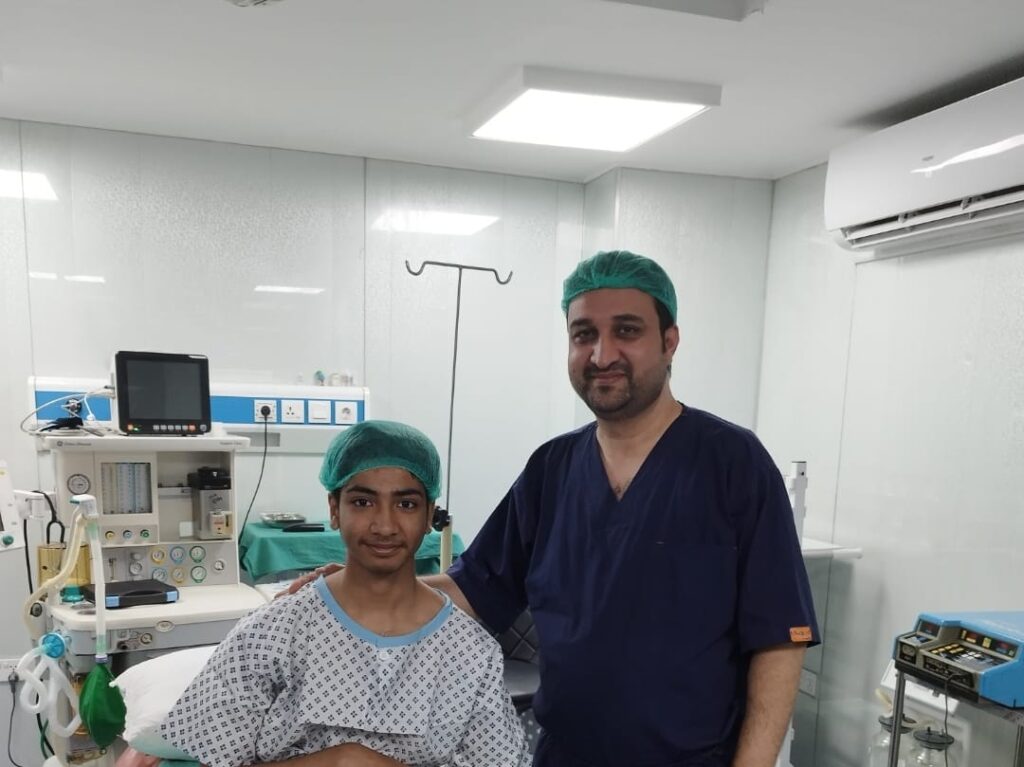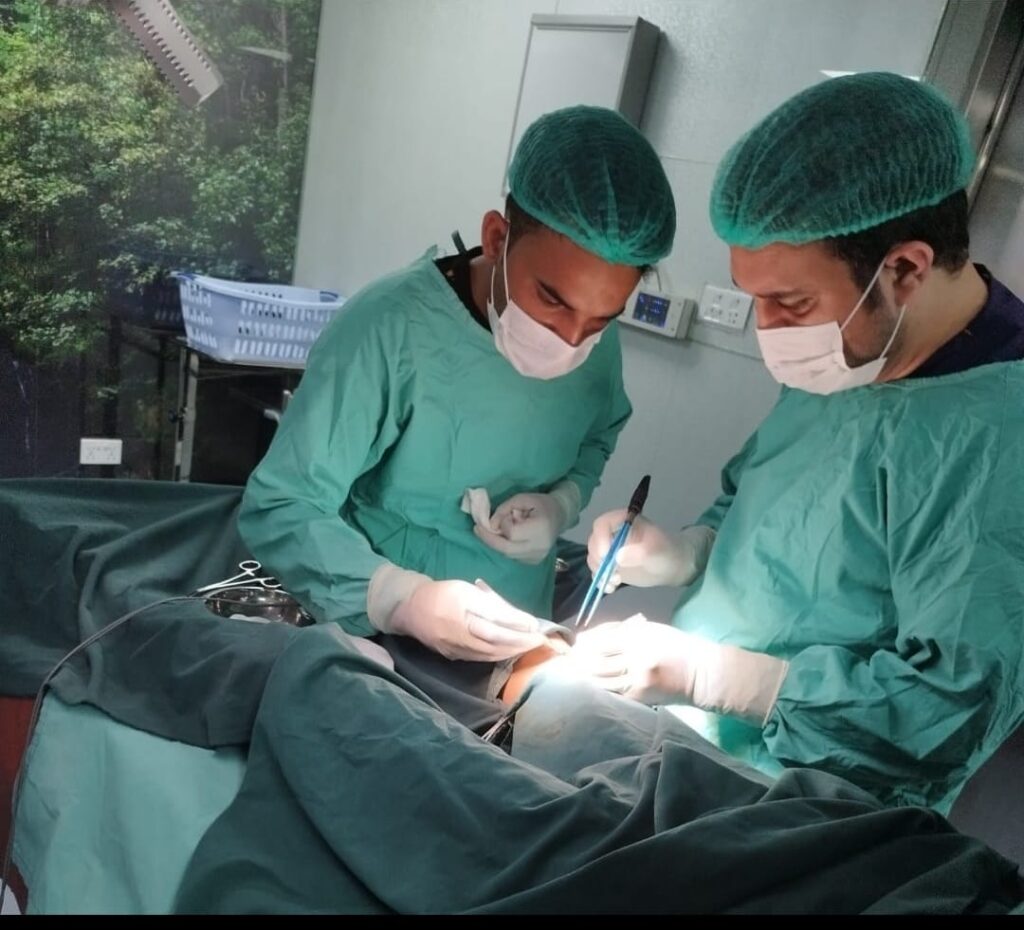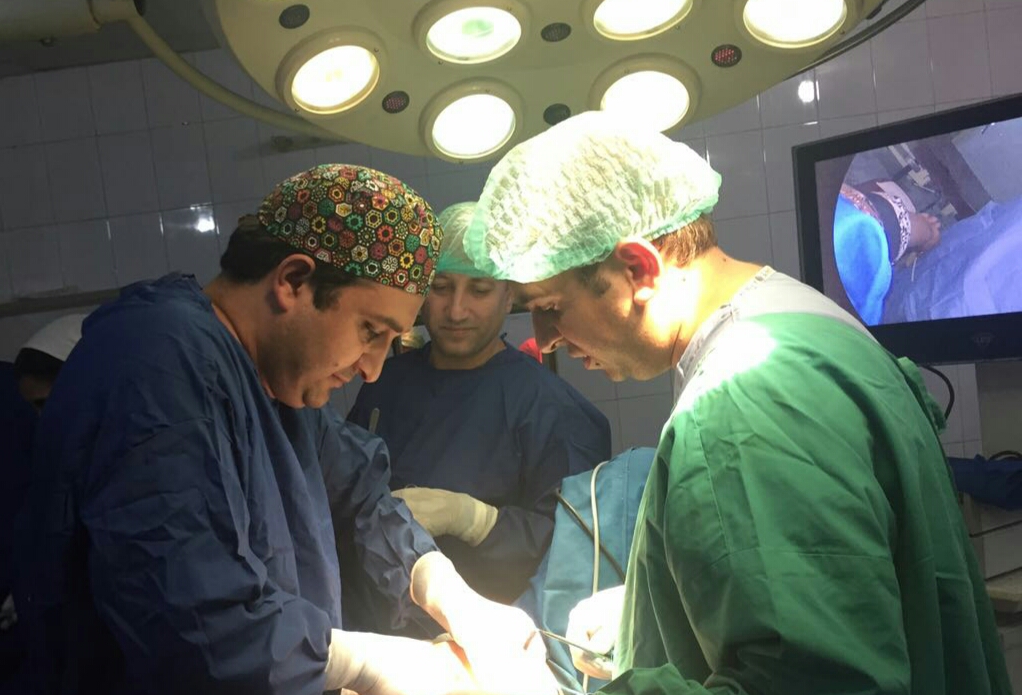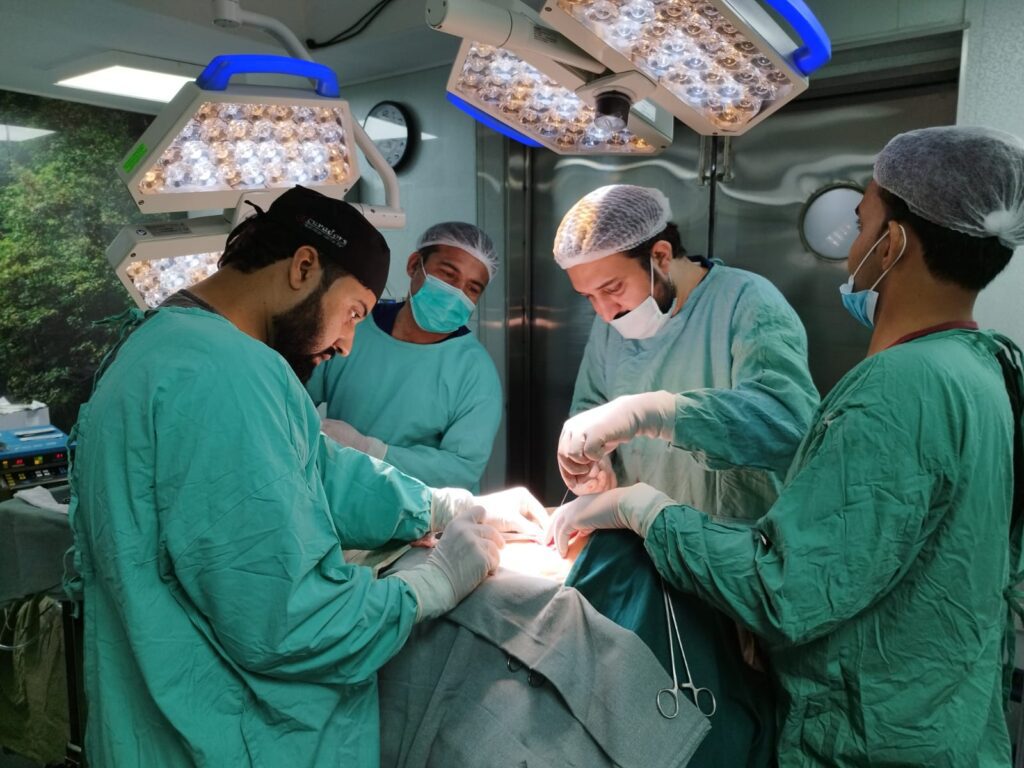- contact@laparoscopyadvice.com
- General Practice Hospital, G-9/2 Islamabad
- Mon - Fri: 10:00 am - 7:00 pm
Visiting Hours
| Mon - Fri: | 8:00 am - 8:00 pm |
| Saturday: | 9:00 am - 6:00 pm |
| Sunday: | 9:00 am - 6:00 pm |
Gallery Posts






| Mon - Fri: | 8:00 am - 8:00 pm |
| Saturday: | 9:00 am - 6:00 pm |
| Sunday: | 9:00 am - 6:00 pm |







Introduction
Esophageal cancer is a malignancy that develops in the esophagus, the muscular tube that connects the throat to the stomach and serves as a conduit for food and liquids. It is a relatively uncommon but aggressive form of cancer, often diagnosed at advanced stages when treatment options are limited. Esophageal cancer can arise from the cells lining the inner wall of the esophagus, typically in the form of adenocarcinoma or squamous cell carcinoma.
Understanding Esophageal Cancer
Esophageal cancer occurs when abnormal cells in the esophagus grow uncontrollably, forming tumors. The two main types of esophageal cancer are squamous cell carcinoma and adenocarcinoma, each with its characteristics and treatment considerations.
Common Types: Squamous Cell Carcinoma and Adenocarcinoma
Exploring the features of squamous cell carcinoma and adenocarcinoma provides insights into the diversity of this condition and the specific challenges associated with each type.
Causes and Risk Factors
While the exact causes of esophageal cancer are complex and not fully understood, certain factors increase the risk of developing this condition. This section explores these factors and identifies individuals at a higher risk.



Identification of Individuals at a Higher Risk
Highlighting risk factors, such as tobacco use, alcohol consumption, and certain medical conditions, provides valuable information for both individuals and healthcare professionals.
Signs and Symptoms
Recognizing the signs and symptoms of esophageal cancer is crucial for early intervention. From difficulty swallowing to unintentional weight loss, understanding the variations based on the type and stage of cancer aids in prompt medical attention.
Variations in Symptoms Based on the Type and Stage of Cancer
Distinguishing between symptoms based on the type and stage of esophageal cancer assists healthcare professionals in tailoring appropriate diagnostic and treatment plans.
Diagnosis
Accurate diagnosis of esophageal cancer involves a combination of clinical evaluation, imaging studies, and biopsy. This section explores the diagnostic procedures and emphasizes the role of endoscopy, imaging studies, and biopsies in early detection.
The Role of Endoscopy, Imaging Studies, and Biopsies
Underscoring the importance of regular screenings and diagnostic tools ensures early detection and improves the chances of successful treatment.
Treatment Options
Managing esophageal cancer includes various modalities, such as surgery, chemotherapy, and radiation therapy. This section explores these options, offering individuals a comprehensive view to make informed decisions about their treatment.
Considerations for Surgery, Chemotherapy, and Radiation Therapy
Delving into surgical interventions, chemotherapy regimens, and radiation therapy considerations provides individuals with the necessary insights for making decisions regarding their treatment.
Impact on Quality of Life
An esophageal cancer diagnosis can have profound effects on an individual’s quality of life, both physically and emotionally. Understanding these effects and exploring coping mechanisms are essential aspects of comprehensive cancer care.
Coping Mechanisms and Support Systems
Highlighting the availability of support groups, counseling services, and resources for coping with the emotional impact of esophageal cancer contributes to a holistic approach to cancer care.
Survivorship and Post-Treatment Care
Rehabilitation and recovery after esophageal cancer treatment are essential components of managing this condition. This section guides individuals on what to expect during the survivorship phase and emphasizes the importance of long-term follow-up care and monitoring.
Prevention Strategies
While not all cases of esophageal cancer can be prevented, certain lifestyle and dietary recommendations can reduce the risk. This section outlines steps individuals can take to maintain esophageal health.
Lifestyle and Dietary Recommendations for Esophageal Cancer Prevention
Providing practical recommendations on maintaining a healthy lifestyle, including quitting smoking and adopting a balanced diet, empowers individuals to take proactive steps towards esophageal cancer prevention.
Esophageal Cancer Awareness and Advocacy
Raising awareness about esophageal cancer is crucial for early detection and improved outcomes. Engaging in advocacy for research and support contributes to a broader effort in combating esophageal cancer.
The Significance of Raising Awareness About Esophageal Cancer
Underscoring the importance of awareness campaigns and education in communities helps dispel myths and encourage proactive health measures.
Frequently Asked Questions (FAQs)
Chronic heartburn or acid reflux can contribute to the development of esophageal cancer, particularly adenocarcinoma. Managing acid reflux is crucial for esophageal health.
Individuals with esophageal cancer may benefit from avoiding spicy, acidic, or rough-textured foods that can irritate the esophagus. Dietary adjustments should be personalized based on individual needs.
While most cases of esophageal cancer are not directly inherited, there can be a genetic predisposition in some cases. Family history may influence the risk.
| Mon - Fri: | 9:00 am - 7:00 pm |
| Saturday - Sunday: | Off |
Copyright 2023 Adil's Laparoscopy World | Powered by Dynaamx